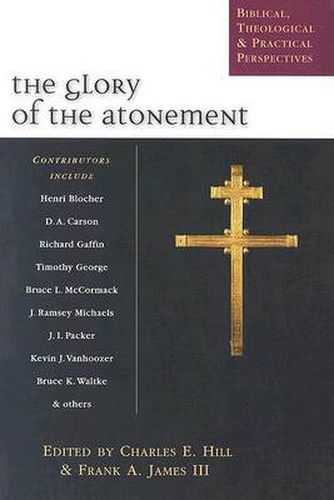Readings Newsletter
Become a Readings Member to make your shopping experience even easier.
Sign in or sign up for free!
You’re not far away from qualifying for FREE standard shipping within Australia
You’ve qualified for FREE standard shipping within Australia
The cart is loading…






The Glory of the Atonement is divided into three parts--biblical, historical and practical--with each section introduced by an overview essay. In part one evangelical biblical scholars explore the atonement within the contours of Scripture, looking first at the atonement in the Pentateuch, Psalm 51 and Isaiah 53, and then more closely at the major texts of the New Testament. In part two historical and systematic theologians weigh the atonement in the ancient, medieval and Reformation traditions. The primary perspective of the contributors is the Reformed tradition, which is further represented by essays on John Calvin, Herman Bavinck and Karl Barth. A timely capstone to this historical view is a stimulating consideration of the atonement and postmodernism. Finally, the implications of the atonement are brought home in part three with a look at the atonement in contemporary preaching and Christian living. Here is a full-course feast for ministers of the Word, a textbook for students of the Bible and theology, and a valuable resource for any theological library.
$9.00 standard shipping within Australia
FREE standard shipping within Australia for orders over $100.00
Express & International shipping calculated at checkout
The Glory of the Atonement is divided into three parts--biblical, historical and practical--with each section introduced by an overview essay. In part one evangelical biblical scholars explore the atonement within the contours of Scripture, looking first at the atonement in the Pentateuch, Psalm 51 and Isaiah 53, and then more closely at the major texts of the New Testament. In part two historical and systematic theologians weigh the atonement in the ancient, medieval and Reformation traditions. The primary perspective of the contributors is the Reformed tradition, which is further represented by essays on John Calvin, Herman Bavinck and Karl Barth. A timely capstone to this historical view is a stimulating consideration of the atonement and postmodernism. Finally, the implications of the atonement are brought home in part three with a look at the atonement in contemporary preaching and Christian living. Here is a full-course feast for ministers of the Word, a textbook for students of the Bible and theology, and a valuable resource for any theological library.